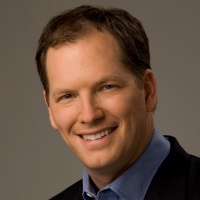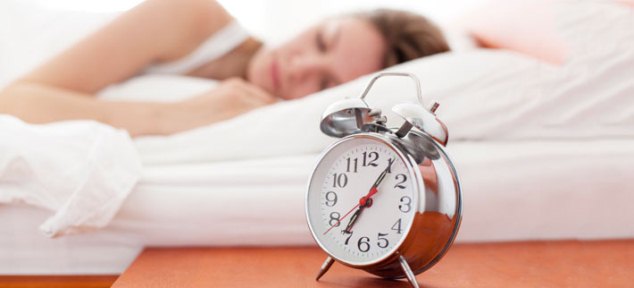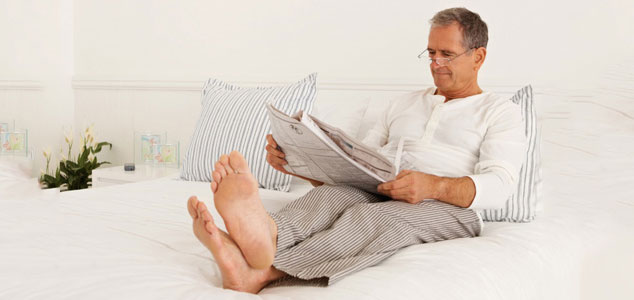Take Control of Your Sleep
- Published: 14 February 2018 14 February 2018
Dr Michael J. Breus
Dr Michael J. Breus is a sleep expert and author of The Sleep Doctor's Diet Plan. He is a clinical psychologist and one of the youngest to pass the board at the age of 31. As one of the only psychologists with his credentials out of 163 psychologists worldwide, Dr. Breus specialises in sleep disorders and is the diplomat of the American Board of Sleep Medicine and of The Fellow of The American Academy of Sleep Medicine. He is also author of Lose Weight Through Better Sleep and the creator of The Dr. Breus Bed. Dr. Breus treats athletes and celebrities and has appeared on CNN, Oprah, The View, and The Doctor's.
Interview with a Sleep Doctor
What was your inspiration for studying sleep medicine?
The truth of the matter is when I started out I wasn't really interested in sleep medicine, I was actually interested in sports psychology and did a residency programme which had both sleep and sports psychology in it, and when I started doing sleep medicine I absolutely fell in love with it because it was a way to help people literally almost instantly. In traditional psychology treatment gains can take weeks, month and years, but with sleep medicine I changed people's lives within 24 hours, which is pretty amazing!
What's your definition of sleep and what are sleep cycles?
There are various definitions of sleep, you can think about it in a lot of ways. Basically it's a period of unconsciousness, that's not a coma but is not activity, so it's kind of somewhere in-between those two. Are you asleep when your eyes are closed and you're almost there? It's just difficult to get a real definition on it. As far as sleep cycles are concerned, the average individual has between 4 and 5 sleep cycles and each of those cycles are made up of the various sleep stages. The average sleep cycle is somewhere between 80 and 120 minutes. When we start to look at how to break down sleep, it's usually broken down by brain waves. The brain waves change for each stage of sleep where as other aspects may not.
How would you describe the biological clock or circadian rhythm and why is it so important?
Your biological clock tells your body when to sleep, but doesn't necessarily make you sleep. It's kind of like hunger; when there is a drive for hunger, you're really hungry, then you eat something and your hunger dissipates, but you only get hungry at certain times of the day. Your circadian rhythm is like getting hungry only at certain times of the day, but rather it tells you when your body is ready for sleep at night, but it doesn't increase the sleep drive. There are really two different systems and your circadian rhythm is actually located in a really specific part of the brain.

What are your top tips for relaxing your body and mind before bed and why is this important?
I came up with this idea called the power-down hour, where people take the hour before the light is out and take care of things for the next day, such as getting the kids ready for school, so the first 20 minutes are for getting these things done. The next 20 minutes are for such things as hygiene, brushing the teeth or washing the face, and the last 20 minutes are for some form of relaxation, such as meditation or prayer. This is important because sleep is not an on or off switch, sleep is more like slowly pulling your foot off the accelerater and slowly putting it on the brakes. It takes time for this to occur and most people don't realise that, so if you allow yourself the time, you will get to sleep.
If you don't have time for a pre-bedtime routine, is there another way to guarantee a good night's sleep?
You can shorten the power-down time to half an hour and do 10 minute sections, so 10 minutes for getting ready for the next day, 10 minutes for hygiene and 10 minutes for relaxation.
What is insomnia and why is it on the rise?
I don't feel insomnia is on the rise. Insomnia is the inability to either fall asleep, or stay asleep long enough to feel rested. The fact of the matter is it might be mildly on the rise due to the current financial crisis going on. As the world becomes more stressful we see an increase in the reporting of insomnia and an increase in prescription sleep aides. However, people been having sleep problems since the dawn of time, there is nothing here that makes me think, "hey we are getting into a new age of insomnia", it's just all the stress in our lives and external stresses making it bubble to the surface a little bit more. Also clinicians are now diagnosing it more, and we have better tools, both pharmacological and non-pharmacological to help treat it.
When travelling what is the best way to adapt to different time zones and sleep restfully in order to prevent jet lag?
There is lots of information for this particular subject, but I will try to give a few general tips. There is a phrase we use in sleep medicine "east is least and west is best." It's easier to travel west because all you're doing is asking the body to stay up later, so if your normal bedtime is 10pm and you're asked to go to bed at midnight, you can do it without much problem. However, if your normal bedtime is 10pm and you asked to go to sleep at 8pm then you're not going to sleep. People need to keep this in mind when traveling, because the direction you travel has a tremendous effect on whether or not you will experience jet lag. Also, the time of travel is important. For instance if you're going to New York you will want to arrive in the morning and get sunlight, because the sunlight resets the circadian clock and it makes it much easier for you to function. I recommend if you have more than a 7-hour flight, you should leave at night and try and sleep on the airplane and arrive in the early morning hours and then do a walking or sightseeing tour in order to get some sunshine.
Does the amount of physical activity affect the way one sleeps, and how can activity be used to improve sleep?
Yes it does, there are two different types of people, the people that when they do physical activity it can mellow them out and they can exercise in the early evenings, and the ones that get energised from physical activity and cannot do physical activity in the evening. However, daily physical activity always improves the quality of sleep.
How can lack of sleep affect one's alertness and time of reaction?
Sleep deprivation is known to affect three areas in particular, reaction time, cognition time (your ability to think clearly) and emotionally. There is documented evidence to suggest that the less you sleep the worse you are in all areas.
Is a power-nap during the day beneficial or does it have a negative effect for bedtime?
It depends, if you are someone who has a hard time falling asleep at night, you should not nap during the day. However, if you're someone who only got 5 hours of sleep and needs more, then a nap is beneficial.
When tired, what is the best way to wake up and stay awake?
Taking a nap will help to wake up and caffeine is good temporarily for someone who needs to be alert and awake. However, caffeine doesn't replace sleep. If you're sleep deprived and need sleep, then caffeine will only mask your need for sleep and may not help and your alertness will become less and less the more sleep deprived you become.
For sleep-well and de-stress holidays view our de-stress holidays.
